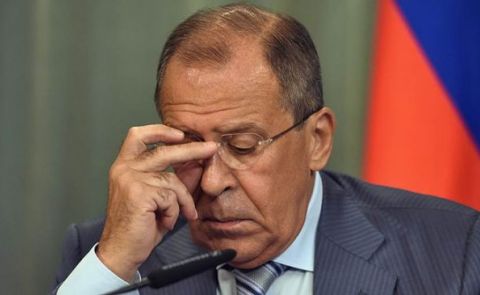
Armenia-Azerbaijan border crisis: tensions flare up after capture of 6 Armenian soldiers
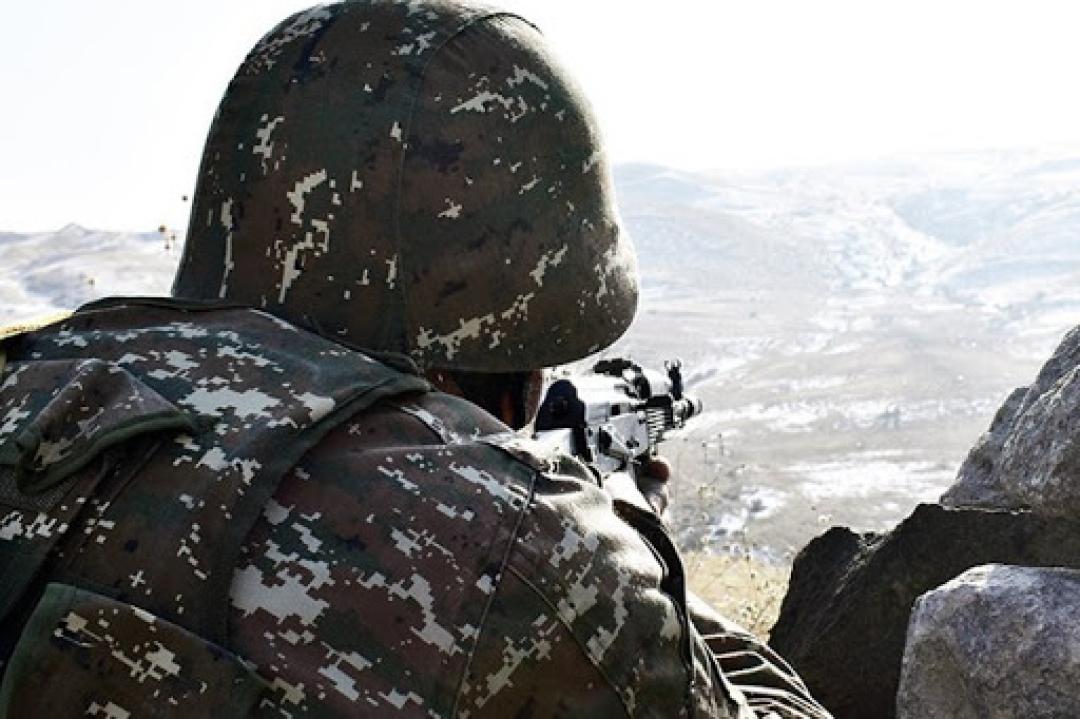
On 27 May, six Armenian soldiers were captured by Azerbaijani forces in a continuing military standoff on Armenia’s border with Azerbaijan.
The Armenian Defence Ministry said the soldiers were “surrounded and taken prisoner” while fortifying their border post in Armenia’s eastern Gegharkunik province. “Necessary measures are being taken to bring back the captured servicemen,” it said without elaborating.
The Azerbaijani Ministry of Defence (MOD) stated that a reconnaissance-sabotage group of Armenian Armed Forces crossed the Armenian-Azerbaijani border in the direction of the Yukhary Ayrim settlement of Azerbaijan’s Kalbajar district. “The Armenian forces carried out mining operations on the approach to the positions of the Azerbaijani Army on the border, and as a result of immediate operational measures, 6 servicemen of the opposite side were besieged, rendered harmless and detained," the statement read. “In the morning, a concentration of several combat vehicles, including tanks of the Armenian Armed Forces, was noticed near the border. As a result of the undertaken measures, their movement was stopped. Currently, the operating conditions in this direction are under the control of Azerbaijani units,” the MOD noted.
Later, the Azerbaijani MOD reported on the details of the incident. According to initial information, Armenia’s two reconnaissance-sabotage groups crossed the state border in two directions. One of the groups consisted of 9 servicemen and the other 15 servicemen. The movement of the reconnaissance-sabotage groups was halted. The Azerbaijan Army Units took urgent operational measures against both enemy groups that were attempting to mine the supply routes and passages on Azerbaijani territory leading to our posts. Other Armenian servicemen immediately left our territory and retreated.
“Anyone with a little knowledge of military affairs understands that engineering work is not done by small groups. Such groups are part of the reconnaissance-sabotage detachments, and it is clear that they invaded our territory to commit provocations. Their purpose was to mine the supply routes in the rear of our forces serving on the border. So that the forces moving along the supply routes were blown up by a mine, as a result of which there would be casualties among the personnel of our units,” said the spokesperson of Azerbaijan’s MOD Lieutenant-Colonel Anar Eyvazov.
The press service of Azerbaijan’s Ministry of Foreign Affairs (MFA) stated that Azerbaijan has started to restore its state border in full compliance with international law and that the attempts to violate those rights were unacceptable. “While the mines laid by Armenia pose a threat to Azerbaijan, the sabotage committed on the Azerbaijani territory by a group of Armenian saboteurs and the next attempts to mine roads could become a serious threat to the lives of Azerbaijani servicemen and civilians," the ministry further stated. “Azerbaijan stands for the elimination of tensions on the Armenian-Azerbaijani state border through negotiations and supports the calls of the international community for the delimitation and demarcation of the border between the two countries,” it concluded.
Meanwhile, Armenia’s acting Prime Minister Nikol Pashinyan said that the Armenian servicemen were planting mines to strengthen the protection of the border. Pashinyan stressed that this work was carried out with the parallel installation of warning signs that the territory was mined. In his words, the circumstances of the incident should be clarified, but one thing is clear: this is not captivity, but abduction of Armenian soldiers from the territory of Armenia. Pashinyan said this incident should not be used for internal political purposes and all attempts to use this against the army should be condemned.
A day earlier, Pashinyan told the Armenian parliament that his government has been considering an appeal to the UN Security Council from the very first days of the incursion of the border crisis on 12 May. He added, however, that before taking the border crisis with Azerbaijan to the UN Security Council it is necessary to make some preparatory work.
Pashinyan also expressed dissatisfaction at the speed at which the Collective Security Treaty Organization (CSTO) was handling the situation. “The CSTO has not expressed a concrete position, it has not stated that Azerbaijan should withdraw its forces from Armenia’s territory. On the working level this position was voiced, but not on the public one,” he stated, adding that Armenia continues working with the structure.
Afterwards, Pashinyan travelled to the village of Kut in Gegharkunik region were the servicemen were held. Speaking to the village residents, Pashinyan said: 'We need to consolidate in this situation, because every time Azerbaijan sees that it has a chance to turn us against each other, it becomes even more active.” "It is necessary to show that regardless of internal disagreements, our first reaction to their actions is consolidation. We are all one family - the families of all the victims, prisoners of war, residents of border areas, residents of downtown Yerevan and the village of Kut - and we should be guided by this logic. The current situation is that Azerbaijan has violated the state borders of Armenia and if we cede our borders, this will further inspire them. We declare that this is our sovereign territory in accordance with international law and that Azerbaijani troops must withdraw. We must show firmness, but we must not let the situation get out of control,” he added.
The Armenian MOD reported afterwards that the operative tactical situation was relatively tense at the border. “The sub-divisions of the Azerbaijani armed forces are trying to take their provocative compulsory actions in several directions and the sub-divisions of the Armenian Armed Forces [is taking] counteractions, trying to remove the forces of the enemy that infiltrated Armenia’s territory,” said the deputy chief of General Staff of the Armenian Armed Forces Mayor-General Edward Asryan. He said first the situation was tense in the direction of Lake Sev Verishen in Sisian-Goris region and during the night it became tense in Kut-Norabak direction. He said the tension reached its peak at approximately 5 a.m. Armenian time.
Asked why the Armenian side did not use weapons, Asryan said the military-political leadership is trying to settle the situation without weapons and use of force. Asryan also said that they are in touch with the headquarters of the Russian peacekeepers in Nagorno-Karabakh and the negotiations are ongoing. “The adversary put its conditions for withdrawing forces, we put ours – we will pull back from advanced positions after they return our captured servicemen,” Asryan said, adding that no other condition is acceptable for the Armenian side.
The spokesperson of Russia’s MFA Maria Zakharova stated that Russia was ready to help the process of delimitation and demarcation of borders between the two countries. “The main reason for the border incident is the lack of international legal registration of borders, which was inherited from the Soviet period. This problem must be solved peacefully through the negotiations,” she said.
“We see the launching of the border delimitation process with its further demarcation as a long-term solution. Russia is ready to help. The Russian side is involved in resolving the incident on the border, assisting to reduce tension. We maintain regular contacts with Baku and Yerevan at the highest… levels,” she added.
Zakharova stressed that both countries are at the beginning of the path to restoring a full dialogue and mutual trust. “Russia is actively making mediation efforts to normalise relations between Armenia and Azerbaijan, stabilise the situation in the South Caucasus, and turn it into a zone of prosperity. Russian peacekeepers guarantee peace and security in the Nagorno-Karabakh region,” she concluded.
See Also

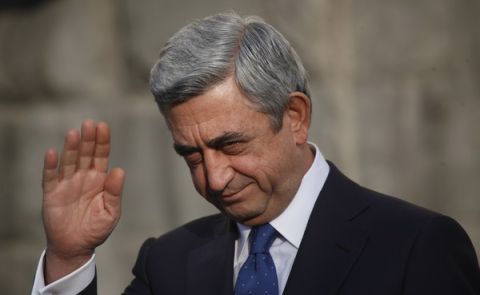
Serzh Sargsyan Rejects Charges, Backs Impeachment, and Warns of Secret Deals
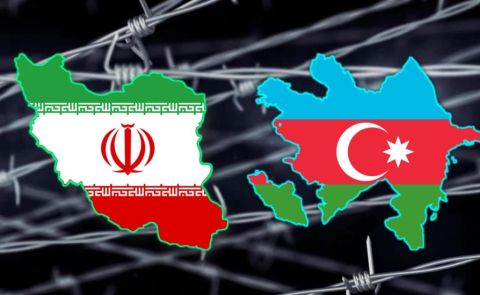
Azerbaijan Confirms Execution of Terrorist Behind Embassy Attack in Iran
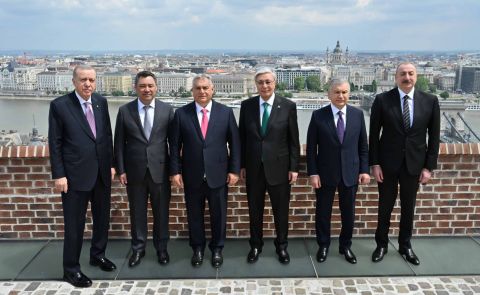
Turkic Leaders Adopt Budapest Declaration, Emphasizing Peace, Trade, and Digital Connectivity
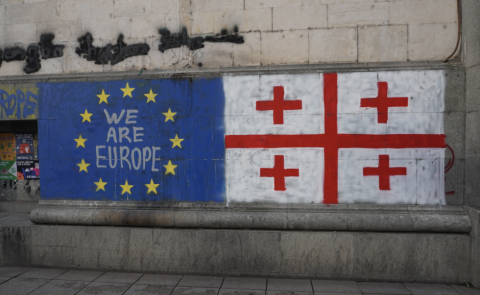
International Officials Criticize Georgian Dream Amid Democratic Concerns

